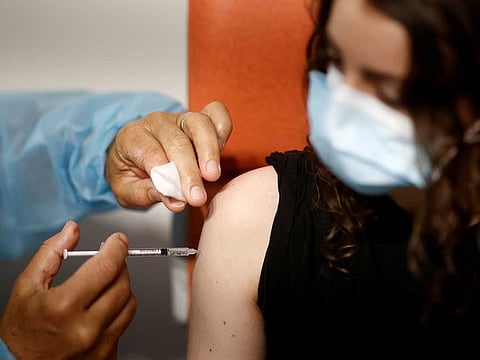France opens to EU travellers, but US, UK still ‘orange’
Measures part of plans to start easing border controls and help France’s tourism industry

Paris: France said Friday it will fully open its borders to EU residents from June 9, but even vaccinated travellers from “orange” Britain and the United States still need a negative COVID-19 test.
Visitors from the EU will not have to provide a negative antigen or PCR test if they have had a full course of one of the four vaccines authorised by the bloc.
The eased rules also apply to seven countries deemed “green” - Australia, South Korea, Israel, Japan, Lebanon, New Zealand and Singapore.
The measures are part of plans to start easing border controls and help France’s crucial tourism industry as the country emerges from its third coronavirus lockdown.
People coming from green zones will also no longer have to give a compelling reason for entering France.
“We have to reconcile freedom of mobility with the need for security,” Tourism Minister Jean-Baptiste Lemoyne said on BFM television.
“Nothing would be worse than to enter yet another COVID-19 wave because we were not careful enough,” he said.
The news will be a relief to the tourism sector, which worried that coronavirus tests that are free in France but can cost 100 euros ($120) or more in some countries would deter foreign visitors.
From July 1, France will recognise a European “health pass” proving inoculation against the coronavirus that authorises travel within the bloc, according to updated guidelines published by the government Friday.
But travel to and from much of the rest of the world where the virus is still circulating will remain subject to stricter controls.
In orange zones including Britain, North America and most of Asia and Africa, even vaccinated travellers to France will still have to produce a recent negative COVID-19 test, but they also will no longer have to prove compelling reasons to visit.
For non-vaccinated people coming from orange zones, only essential trips such as medical or family emergencies will be allowed, the government said.
Sixteen countries will remain largely off-limits because of a surge in worrying coronavirus variants that are more contagious or serious and could prove less responsive to the four vaccines authorised in Europe.
They include India, Turkey, South Africa and much of South America including Brazil.
Travellers from these countries will need to provide negative COVID-19 tests whether vaccinated or not, and will have to quarantine for seven to 10 days on arrival.
Sign up for the Daily Briefing
Get the latest news and updates straight to your inbox








